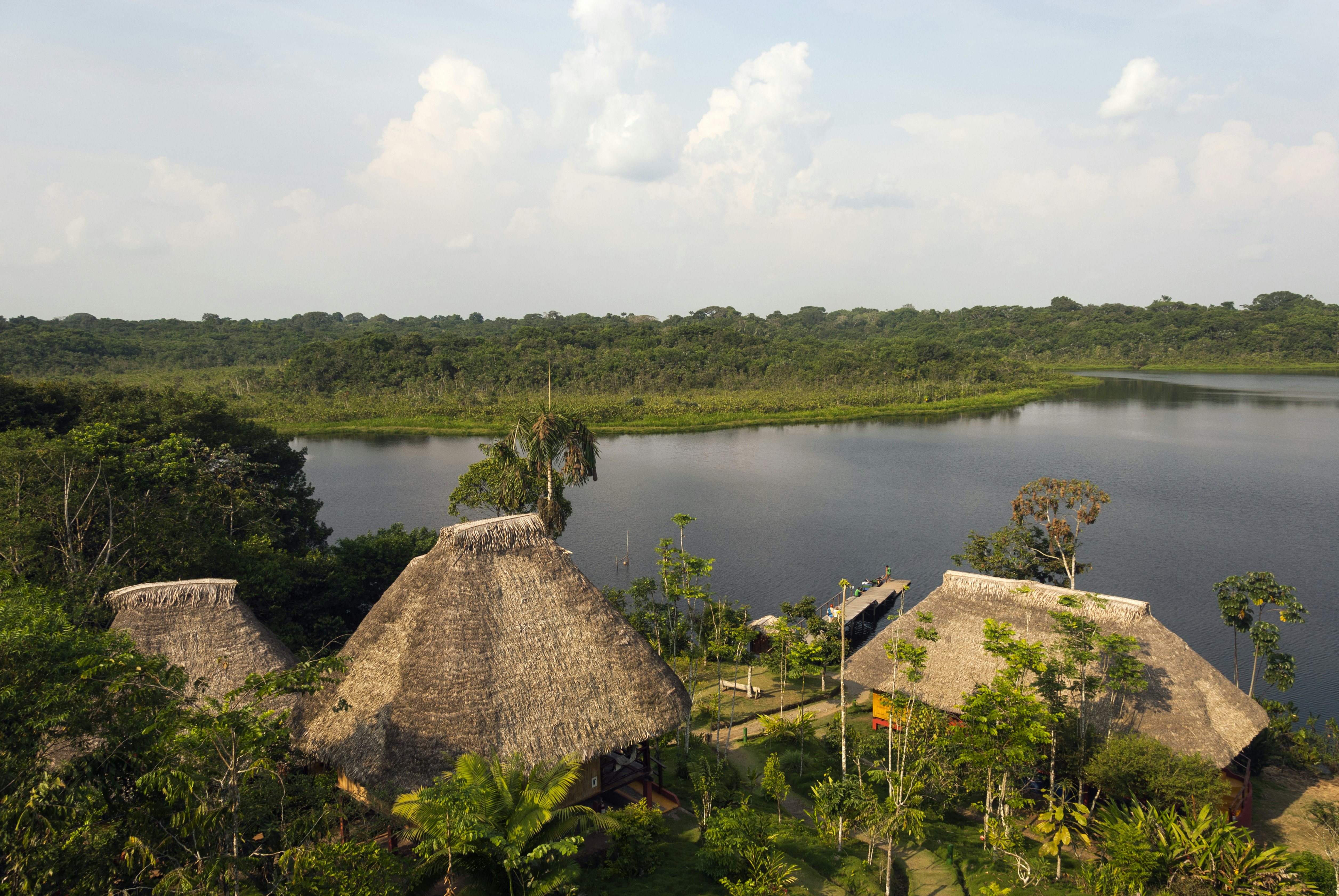
Countless studies have found that spending time in nature is good for mental health. But these studies might not have the whole story.
According to a review published last week in Current Research in Environmental Sustainability, researchers analyzed ten years of major studies on how nature affects wellbeing. Ninety-seven percent, the study found, were from rich countries. The authors argue this bias limits the universality of trendy ideas about the healing power of green space.
“A giant proportion of humankind is not included,” Rachelle Gould, one of the authors, told Inverse. “And so we can't tell what's universal and what's culturally specific.” Gould, a professor of environmental studies at the University of Vermont, sees the gap as an obstacle for her field “to impact the world, to improve human wellbeing in sustainable ways.”
And, the authors of the new study say, when research on nature comes from wealthy, westernized countries, western ideas about nature’s purpose are promoted and others ignored.
How They Did It — The researchers scoured databases of academic literature for studies on nature and mental health published from 2010 to 2020, widening their net by using several synonymous related to both concepts (wellbeing, stress, anxiety, etc.; outdoors, environment, woods, etc.).
What’s New — They found 174 peer-reviewed studies. Ninety-seven percent were conducted in countries classified as high-income by World Bank, 2.9 from upper-middle-income countries, 1.1 from lower-middle-income countries. (That’s two studies, one from India and the other from Iran.) None came from low-income countries.

Out of the 217 countries indexed by the World Bank, 80 are high-income, 55 upper-middle-income, 55 lower-middle-income, and 27 low-income. “[T]here is thus monumental under-representation,” the study says, “mostly of countries in Global South.”
The overrepresentation of wealthier nations expectedly co-aligns with an overrepresentation of Western countries. Seventy-five percent of the studies were conducted in the Western hemisphere. Another 23.3 percent came from countries considered Westernized by at least one of the two commonly cited indexes the researchers used. These are places that, regardless of continent, have adopted key Western values or lifestyles. They include China, South Korea, Singapore, Israel, and South Africa.
The studies in places like China tended to focus on urban centers, not agricultural populations, for whom nature is not a temporary refuge. “Those studies happen in relatively large cities, globalized cities,” says Carlos Andres Gallegos-Riofrío, another co-author. “When you read those studies, they basically replicate the formula of the studies conducted in the Western world. There is not a cultural nuance, not even for their own diversities.”
So that means 98.3 percent of data about the environment and mental wellbeing coming from Westernized countries and vast swaths of the global map is not represented. Only one study per region was conducted in Latin America, South Asia, and Africa, and only two in the Middle East. Meanwhile, 30 were conducted in the U.S. and 11 in Canada.
Bias in study participants is an increasingly acknowledged problem in psychology in general. Researchers, particularly those who publish in top journals, are more likely to study Westerners, affluent and well-educated people, and those living in stable democracies. Still, the findings are often applied universally.
One reason is logistic. These are the populations to which psychologists have the easiest access. Also, Gould says, psychology tends to attract more academics in Westernized countries because it is “very focused on the individual mind, and that mentality aligns more with Western and American thinking.”
Another common diversity issue in the 174 studies the researchers gathered was that they were largely indifferent to racial differences within their study samples. Only 62 percent reported ethnicity, and in the studies that did track ethnicity, “white participants are strongly overrepresented, especially when compared to national demographic distributions,” the new paper says.
Why It Matters — In an over-stressed, over-connected age that is obsessed with non-pharmacological paths to better living, nature therapy is in vogue. There is a cottage industry of pop psychology books touting the mental health benefits of getting outside, with titles like Your Brain on Nature. The Well-Gardened Mind, The Natural Health Service, The Nature Fix, and Ecotherapy. (Two books, one from 2009 and another from 2016, share that last title.)
A more expansive approach is not likely to reverse the overarching message of these books and reveal that actually nature is meh for your wellbeing. However, the paper’s authors argue that an over-representation of rich and white populations threatens to erase some cultures’ unique relationships with green spaces.
“Nature is treated as a mechanism to alleviate mental distress and improve cognitive functions, rather than as an intertwined, sacred, fundamentally holistic entity.”
“One example in the U.S. that's really relevant is that there is a lot of talk about African-Americans, the black community, having a different relationship with forest than white people,” says Gould.
Several studies have found that Black Americans are less likely to engage in nature-based recreation. Cassandra Y. Johnson, one of the first sociologists to study the divide, once wrote that “blacks’ collective ‘memory’ of sociohistorical factors such as slavery, sharecropping/Jim Crow, and lynching may have contributed to a black aversion for wildland environments.”
Another group with a fundamentally different view of nature is Indigenous peoples. They were almost completely absent from the studies the researchers examined. Only two studies, one from Canada and the other from New Zealand, included participants who explicitly marked their identities as Indigenous, and they were less than 10 percent in each.
Gallegos-Riofrío studies Andean states — the part of South America clustered around the Andes Mountains, including Bolivia, Chile, Ecuador, and Peru — where Indigenous peoples make up a large percent of the population.

This First Nations of the Andean states championed “the Rights of Nature,” the idea that the natural world is a legal entity with rights and protections (codified in the Ecuadorian constitution). They have different concepts of the self, says Gallegos-Riofrío; the Quechua language does not have unique words for “I” and “we.” This makes Western assessment tools on mental illness useless, he says.
How would a finding, like, say, that horticulture alleviates depression symptoms, apply to them?
The paper’s authors also noted that the research they evaluated often had a Westernized definition of “nature” as a resource to utilize.
From the study:
Our assessment demonstrates that research in this field overwhelmingly considers nature as a therapeutic alternative: “nature doses” are health interventions, wilderness is a therapy, and “Vitamin G” (greenspace) is a “substance” humans need. Nature is treated as a mechanism to alleviate mental distress and improve cognitive functions, rather than as an intertwined, sacred, fundamentally holistic entity.
Studies tended to focus on parks, the carved-out institutionalized green spaces that exist in heavily industrialized countries. Rarely did they define nature as a “place as not separate from humans and not a commodity that can be owned, but as a spiritual relationship that sustains life.”
The paper lists a number of remedies: Try to reach unrepresented subsets of people; record the ethnicities of study participants; and “create a repertoire of culturally sensitive instruments, tools, and designs” for measuring mental health and connectedness to nature.
“This really matters,” says Gould. “There's something really powerful about being in nature, and let’s make sure we understand what that is, in all its facets.”







